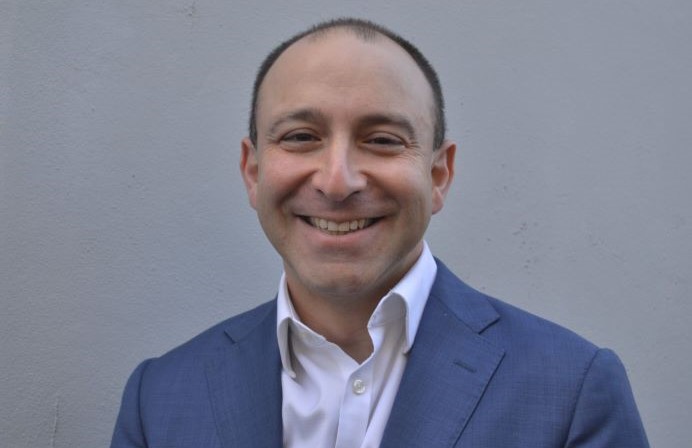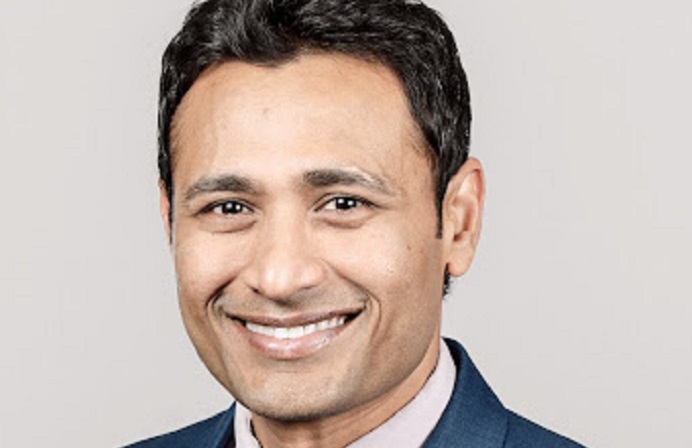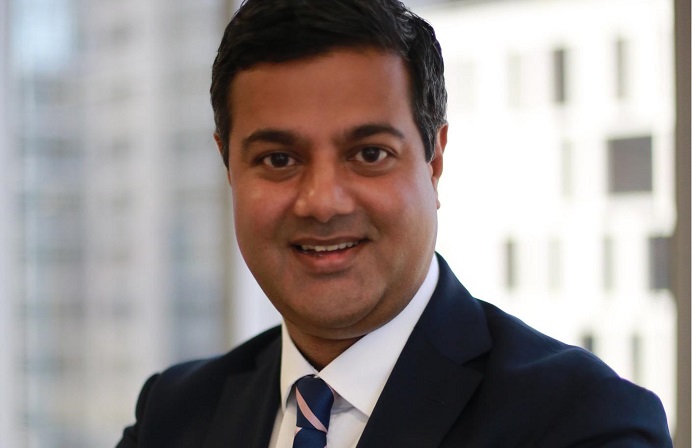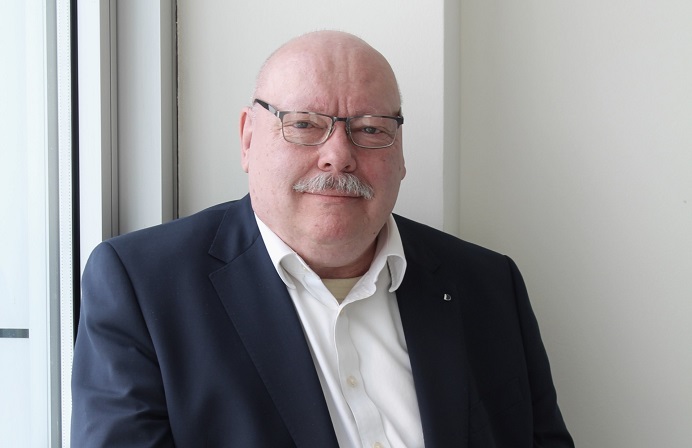
“For us, virtual banking meant building something from scratch: a new operating model, as well as a new technology stack, that could ultimately point the way to the future for Standard Chartered.”
Standard Chartered has long stood as one of Asia’s preeminent banking powerhouses. Yet Goliath was hardly known for his agility: indeed, while SC’s extensive branch network positions it at the heart of one of the world’s most economically and digitally advanced banking markets, its sheer heft has weighed on its dynamism, hampering its ability fast-track ambitious digital innovation. Enter Mox – SC’s dedicated neobank spin-off and among the first ‘virtual banks’ to be established in the Hong Kong market.
In preparation for its imminent launch in the latter half of 2020, we speak with Deniz Güven, chief executive officer of Mox, on the virtual bank’s unique trust-centred customer proposition, its ground-up infrastructure and tech stack build, and the value of giving one of Asia’s oldest banks an unfettered vehicle to pursue its digital ambitions.
FST Media: With in-house beta testing now underway, auguring an official launch later this year, Mox is set to be among the first virtual banks to launch in the region. What prompted Standard Chartered, Mox’s backer, to pursue this digital-only endeavour?
Güven: The idea of ‘virtual banks’ was first unveiled by the Hong Kong Monetary Authority (HKMA) in 2017, when the regulator announced its Smart Banking initiative. This comprised seven elements, one of which was to facilitate virtual banking in Hong Kong through the issuance of virtual banking (VB) licenses. HKMA’s objective was to usher Hong Kong into a new era of smart banking and to innovate the retail banking sector.
Standard Chartered looked closely at what HKMA’s move in issuing VB licences meant, what virtual banking could offer in Hong Kong that traditional banking could or could not. Far more than talking about virtual banking in conceptual terms, we had to ask these questions:
- Can we defend our market with our existing model?
- Can we attack this market with our existing model?
SC already had a fantastic global customer base, an extensive branch network, and a strong brand and presence. We offered a variety of existing digital capabilities; these strengths were not enough, however, to differentiate ourselves or create a new value proposition amongst an increasingly digital consumer base. They would also not allow us to defend our market against neobanks who will enter the market on an entirely digital ticket.
FST Media: Neobanks have bloomed across the globe, particularly in Australia. What has inspired this neo flowering, and why do you feel digital-only banks have become such an attractive proposition for today’s customers?
Güven: Despite the many retail banks available in Hong Kong, with many online banking services available to consumers, we believe there are still gaps in banking services that people need today. There is an underserved customer base in Hong Kong. Traditional banks today still operate more based on their terms and less to the customers’ needs. For example, opening a bank account is often a tedious process, requiring queuing up in a branch at designated hours with necessary documents. Many banks require a minimum amount.
We are a company that builds trust. We are not a technology company; we are not a bank as many people would understand the term. We are building a new bank, based on trust and on service, thus we had to rethink our business strategy for the mobile-first, digitally empowered Hong Kong consumer. It has to start with listening to what customers want and what’s missing in retail banking in Hong Kong. We spoke with over 2,000 people and they all told us they want new and better experiences. They spoke of wanting savings and spending advice, based on their life stages, not how much they already have. They want advice to help them track and achieve their life goals, much like fitness apps. They want even better security and fraud monitoring in these times of e-commerce. They want more services and rewards out of their banks.
With the support of our partners, we are connecting banking into people’s everyday lives, and shaping a new model that – just might – reflect the future of banking. Banking has to be simple, intuitive, and even delightful to consumers.
FST Media: Tell us about the Mox mission. What makes your prospective customer offering stand out from the pack – not only from banking incumbents but also other neobank/fintech rivals?
Güven: While we are a fully licensed virtual bank, we also take pride in Standard Chartered’s heritage of being Hong Kong’s oldest note-issuing bank with more than 160 years of experience in serving the community. We are a start-up in every sense of the word, yet a completely different entity from Standard Chartered Bank.
A few things we want to highlight. First, we are not just an app; we are a whole new approach to banking that’s focused on solving customers’ needs. Our goal is on winning “heart share”, rather than market share. If we make ourselves more relevant to customers’ daily lives, the business would simply follow.
Which leads to our second differentiator: the customer experience. It’s real-time, it’s always open, and with banking functionalities that Hong Kong people have never experienced before. We are starting with bringing a whole new way for people to save. Our customers will earn a daily interest rate on their Mox account and set up their goals, name them as they like, and track the progress in real-time. Mox follows the customer at whatever stage in their lives and focuses on helping the customer grow – their money, their world, their experiences.
While customers receive their virtual card and can bank immediately upon opening their account, they still need a physical card when they travel or when they need ATM services. We’ll be the first bank in Asia to launch a numberless, all-in-one physical bank card together with Mastercard. It does not have any numbers on it, other than your name – no account numbers, no expiry dates or CVVs. This brings an added security not experienced before in Hong Kong, and extremely helpful if you lose your card. You can lock and unlock your card directly from the app.
And finally, we want to bring extra value and reward customers in new, refreshing, and delightful ways. So we are working with partners and building an ecosystem that will add value to the services we offer. We have HKT (Hong Kong Telecom) and its parent PCCW, the leading telco players in Hong Kong, both with many subscribers. We also have Trip.com, Asia’s largest online travel agency, who will provide new travel services together with us.
FST Media: What would you consider the key technological ingredients to building a long-lasting and customer-relevant digital bank?
Güven: We were clear that we wanted to be a service-led bank, not a product-led one. Service was essential to differentiate our offering in a mature market such as Hong Kong. Despite its advanced digital awareness and adoption, it had far less of a service culture than other markets. Interestingly, it is also on the digital platform that you can truly bring a differentiated service culture. This is accelerated even more with Covid-19, which has seen more and more people living their lives virtually.
Customers should choose Mox as a lifestyle choice, not only a banking choice. They should gain more from us than banking services alone. For example, banks process an enormous amount of data, but the benefits of this data often accrue only within the bank itself. We wanted to harness this data to give Mox customers useful information that they would not be able to source otherwise.
FST Media: Neobanks, being built from the ground-up, are typically unencumbered by legacy. With no human fallback, however, your technology backend is business-critical to your functioning. How do you ensure your systems remain foolproof and resilient in the face persistent, often inscrutable challenges?
Güven: We started with an entirely ‘blank page’, rather than using any of the bank’s existing technology platforms. As a result, we would become one of the world’s few cloud-native banks, a characteristic shared only by challenger banks, making our development and our ultimate technology infrastructure cheaper, faster, and more resilient.
Although we did not use Standard Chartered’s technology, we took full advantage of the bank’s expertise, as well as engaging with a number of fintech providers. By harnessing the power of our entire ecosystem, we could accelerate development and source best-in-class capabilities, such as using machine learning to strengthen and streamline anti-money laundering compliance. Even so, creating robust regulatory compliance and risk modelling frameworks, together with security and scalability, is a major undertaking.
While we wanted to bring many of the advantages offered by our fintech partners, we are a bank, and we need to fulfil our obligations as a bank. We have been doing extensive testing, especially as we’re operating under the Beta Sandbox environment, and so as you can appreciate, we undergo a significant number of independent assessments before launching.
FST Media: What is on your immediate digital innovation wish list for Mox?
Güven: We aim to be a game-changer in Hong Kong’s banking industry and Mox aims to make managing money simpler, intuitive and delightful, by empowering customers with financial knowledge, a suite of retail banking services and lifestyle rewards, all in one place.
We aim to introduce some market firsts to Hong Kong consumers. Together with Mastercard, Mox is the first bank in Asia to launch an all-in-one numberless bank card – a physical card for both spending and ATM cash withdrawals without any printed card numbers, expiry dates or card verification value (“CVV”). This helps reduce customers’ risk of losing personal information, making it one less thing to worry about. All card information can be securely accessed in the Mox app. And if our customers ever lose the card, simply and instantly freeze it in the app. All our customers will receive a Mox Card when we launch to the public later this year.
FST Media: Australia itself is now flush with neobank challengers nipping at the heels of the big four incumbents. What lessons can incumbents take from the experience of digital-only challengers, particularly in meeting the ever-changing demands of customers?
Güven: The fundamental question to us was: ‘What exactly is a virtual bank?’ We had to be clear that we were not simply developing a mobile app and a new approach to marketing. For us, virtual banking meant building something from scratch: a new operating model, as well as a new technology stack, that could ultimately point the way to the future for Standard Chartered. The next big question was how much money we would need to develop it. We had a meeting with senior management with a few slides, projections, and calculations. They asked how much money we needed on the spot. The whole process told me that it’s all about being prepared to be agile and visionary, rather than be in a ‘defend our market share’ mode.
We undertook detailed ethnographic research to try to understand the banking pain points that Hong Kong residents were experiencing. Consultants sent us multiple documents, and we sourced a great deal of internal research from the bank. We had lots of facts, but no insight. For example, the research illustrated that people may have, say, six cards in their wallets. But why? Cashback incentives may seem to be an obvious reason, but did that explain what consumers really want?
We reached out to 2,000 people in Hong Kong, and as a result, uncovered some 85 pain points in retail banking in Hong Kong across onboarding, payments, channels, savings etc. Some of these were major issues, some were irritations. Ultimately, this approach was essential to defining the journey that would ultimately lead to Mox.
For example, it typically takes two or three days – if you’re lucky – to open a bank account or to obtain a credit card in Hong Kong, despite being one of the most advanced banking markets in the world. The process requires a lot of documentation, and it can be stressful and labour-intensive for both consumers and the bank. Frankly, this experience is never going to start the relationship on the right footing, and it shouldn’t be necessary. We wanted to completely reshape the way that consumers engaged with the bank from the start, not simply to add a card in a different colour to their wallets.
Through the process of working with HKMA in the development of Mox, we got to meet the other applicants for VB licences. Some of them approached us and suggested working together. Over time, the number of approaches started to ramp up. Forming this joint venture partnership represented a major step change for Mox. I knew from my past experience, as well as from all our research, that you cannot be successful in this industry if you work alone. You need partners to build an ecosystem and diversify distribution channels, particularly for the service-led bank that we conceived Mox to be. We wanted Mox to become integral to people’s daily lives, so working with partners that had already achieved this, to create joint service offerings, was key to our value proposition.
FST Media: In the midst of Covid-19 shutdowns, how has Mox, in this unique working environment, ensured it can effectively progress with its rollout and ready itself for launch?
Güven: We are on track, and we are in fact one of the world’s first bank to deliver work-from-home model despite the challenges brought upon by Covid-19; we’re looking to launch Mox later this year. I have to hand it to my team here – their perseverance, their passion and commitment to the cause. Despite being of different cultures, different experience sets, they hunkered down and didn’t let the pandemic affect target deadlines. We also have to thank HKMA, whom we worked closely with during the sandbox development. They want all of the licensees to succeed.
FST Media: Digital is in your DNA. What’s inspired your career-long pursuit of bleeding-edge digital innovation?
Güven: My journey that led to the creation of Mox initially started in Istanbul. I took on my first ‘digital’ role at HSBC in 2000 there, but the concept of digital meant something quite different from today. To most people at that time, banking meant branches and ATMs. Online banking was still new and mobile banking did not exist. As that time, we were exploring the potential of the internet – as indeed we still are – to look at different ways to engage with customers beyond the traditional branch network.
This same question, ‘How can we engage with customers in new ways, to create a new customer experience that has not been possible before?’, has continued to dominate my career. I worked for various banks in various cities across the world: London, Hong Kong, Bucharest, Kyiv, and Moscow. While the payment methods, banking systems and culture differed in each location, the aim was still the same: to reshape banking, and make it easier, safer and a delight for customers.
In 2007, I took up a digital leadership role at Garanti BBVA in Istanbul. In the same year (2007), we launched one of the first mobile-only banks in Turkey. Working for an organisation that had the vision and appetite for digital and innovation was a great experience, and over the next few years, my team and I were able to expand our digital offering substantially, including digital marketing, eCommerce, customer engagement, fintech partnerships, and a ventures business.
The effects of the Global Financial Crisis in 2008-09 ricocheted across industries and communities, but one of the effects was a loss of trust in the banks. This, combined with rapid changes in consumer behaviour and expectations, led to the rise of digital “challenger banks”. These were new, digital-first banks, such as Monzo Bank, launched in the UK in 2015. This reflected an entirely different model of banking and customer engagement, with a distinct team and technology infrastructure from the rest of the bank.
These experiences culminated in a move to Standard Chartered in Singapore in 2017, and now here in Hong Kong. ◼





